Filter by
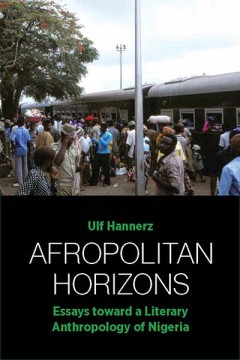
Afropolitan Horizons : Essays toward a Literary Anthropology of Nigeria
Nigeria is a country shaped by internal diversity and transnational connections, past and present. Leading Nigerian writers from Chinua Achebe, Amos Tutuola and Wole Soyinka to Chimamanda Ngozi Adichie and Teju Cole have portrayed these Nigerian issues, and have also written about some of the momentous events in Nigerian history. Afropolitan Horizons discusses their work alongside other novelis…
- Edition
- -
- ISBN/ISSN
- 9781800732995
- Collation
- -
- Series Title
- -
- Call Number
- -

Le Labyrinthe littéraire de Mohamed Mbougar Sarr
Depuis ses débuts avec la nouvelle « La Cale » en 2014, les textes de Mohamed Mbougar Sarr connaissent un succès qui ne se dément pas. Terre ceinte en 2015, Silence du chœur en 2017 et De purs hommes en 2018 ont remporté des prix littéraires de grand renom. Enfin, le jury du prix Goncourt a opté en 2021 avec La plus secrète Mémoire des hommes pour un roman qui offre une métaréflexi…
- Edition
- -
- ISBN/ISSN
- 978-90-04-71089-4
- Collation
- xiv, 362 pp.
- Series Title
- Francopolyphonies, Volume: 36
- Call Number
- -

Knowing - Unknowing : African Studies at the Crossroads
This book emerges at a time when critical race studies, postcolonial thought, and decolonial theory are under enormous pressure as part of a global conservative backlash. However, this is also an exciting moment, where new horizons of knowledge appear and new epistemic practices (e.g. symmetry, collaboration, undisciplining) gain traction. Through our critical engagements with structural, relat…
- Edition
- -
- ISBN/ISSN
- 978-90-04-70144-1
- Collation
- xiv, 310 pp.
- Series Title
- Africa Multiple, Volume: 4
- Call Number
- -

Jesuits in Africa : A Historical Narrative from Ignatius of Loyola to Pedro A…
Jesuits have been in Africa since the founding of their order, yet their history there remains poorly researched. Although scholars have begun to focus on specific regions such as Congo, Ethiopia, and Zimbabwe, a comprehensive picture of the entire Jesuit experience on the continent has hitherto been lacking. In a condensed yet accessible way, Jesuits in Africa fills that lacuna. Narrating the …
- Edition
- -
- ISBN/ISSN
- 978-90-04-51285-6
- Collation
- vi, 115 pp.
- Series Title
- Brill Research Perspectives in Jesuit Studies
- Call Number
- -

Islamic Ethics and the Trusteeship Paradigm: Taha Abderrahmane’s Philosophy…
Islamic Ethics and the Trusteeship Paradigm explores the emerging ethical theory of the trusteeship paradigm as developed by the Moroccan philosopher Taha Abderrahmane (b. 1944). The volume, with contributions in English and Arabic, examines the development of this modern Islamic theory of ethics and how it permeates various disciplines: philosophy, theology, legal theory, Sufism, moral theory,…
- Edition
- -
- ISBN/ISSN
- 978-90-04-43835-4
- Collation
- xviii, 364 pp.
- Series Title
- -
- Call Number
- -
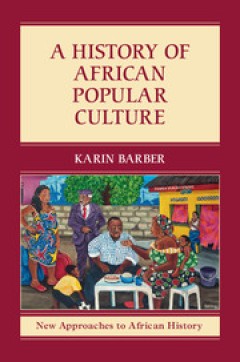
A History of African Popular Culture
Popular culture in Africa is the product of everyday life: the unofficial, the non-canonical. And it is the dynamism of this culture that makes Africa what it is. In this book, Karin Barber offers a journey through the history of music, theatre, fiction, song, dance, poetry, and film from the seventeenth century to the present day. From satires created by those living in West African coastal to…
- Edition
- -
- ISBN/ISSN
- 9781139061766
- Collation
- -
- Series Title
- New Approaches to African History
- Call Number
- -
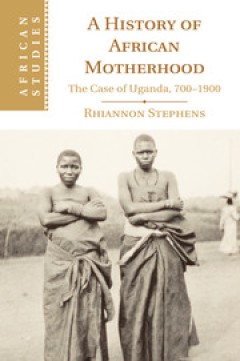
A History of African Motherhood The Case of Uganda, 700–1900
This history of African motherhood over the longue durée demonstrates that it was, ideologically and practically, central to social, economic, cultural and political life. The book explores how people in the North Nyanzan societies of Uganda used an ideology of motherhood to shape their communities. More than biology, motherhood created essential social and political connections that cut acros…
- Edition
- -
- ISBN/ISSN
- 9781139344333
- Collation
- -
- Series Title
- African Studies
- Call Number
- -
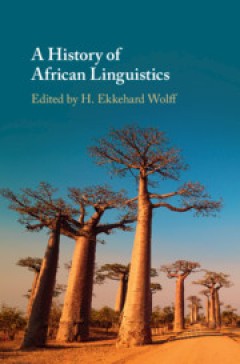
A History of African Linguistics
Bringing together a team of leading scholars, this volume forms the first global history of African linguistics as an autonomous academic discipline, covering Africa, America, Asia, Australia, and Europe. Defining African linguistics, the volume describes its emergence from a 'colonial science' at the turn of the twentieth century in Europe, where it was first established mainly in academic ins…
- Edition
- -
- ISBN/ISSN
- 9781108283977
- Collation
- -
- Series Title
- -
- Call Number
- -
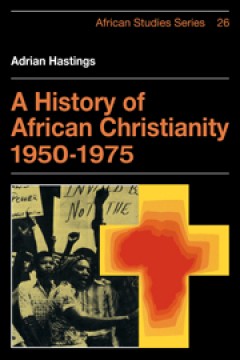
A History of African Christianity 1950–1975
The churches in Africa probably constitute the most important growth area for Christianity in the second half of the twentieth century. From being a number of rather tightly controlled 'mission fields' zealously guarded by the great missionary societies, Catholic and Protestant, they have emerged across the last decades in bewildering variety to selfhood, a membership of close on a hundred mill…
- Edition
- -
- ISBN/ISSN
- 9780511563171
- Collation
- -
- Series Title
- African Studies
- Call Number
- -
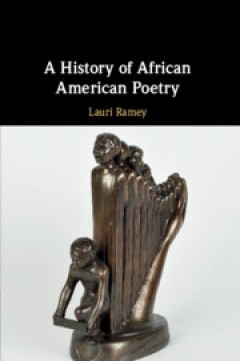
A History of African American Poetry
African American poetry is as old as America itself, yet this touchstone of American identity is often overlooked. In this critical history of African American poetry, from its origins in the transatlantic slave trade, to present day hip-hop, Lauri Ramey traces African American poetry from slave songs to today's award-winning poets. Covering a wide range of styles and forms, canonical figures l…
- Edition
- -
- ISBN/ISSN
- 9781139548939
- Collation
- -
- Series Title
- -
- Call Number
- -
 Computer Science, Information & General Works
Computer Science, Information & General Works  Philosophy & Psychology
Philosophy & Psychology  Religion
Religion  Social Sciences
Social Sciences  Language
Language  Pure Science
Pure Science  Applied Sciences
Applied Sciences  Art & Recreation
Art & Recreation  Literature
Literature  History & Geography
History & Geography